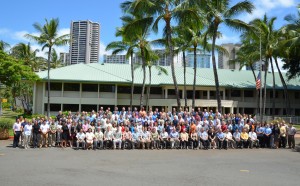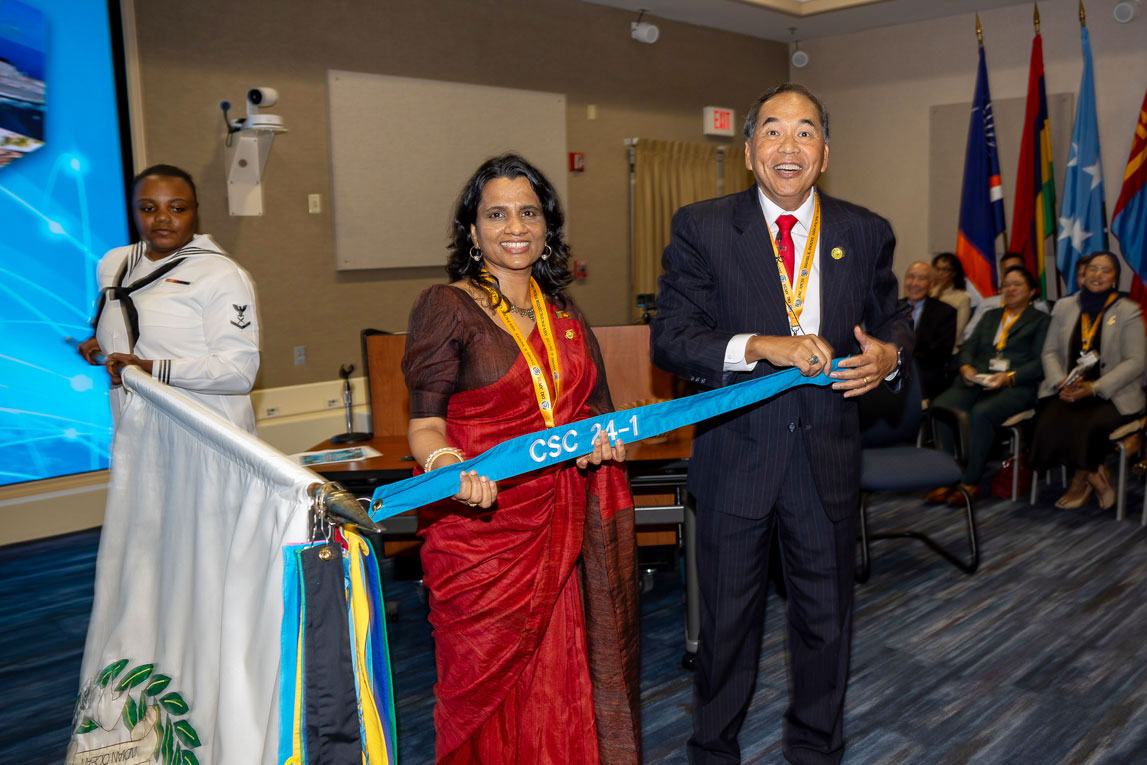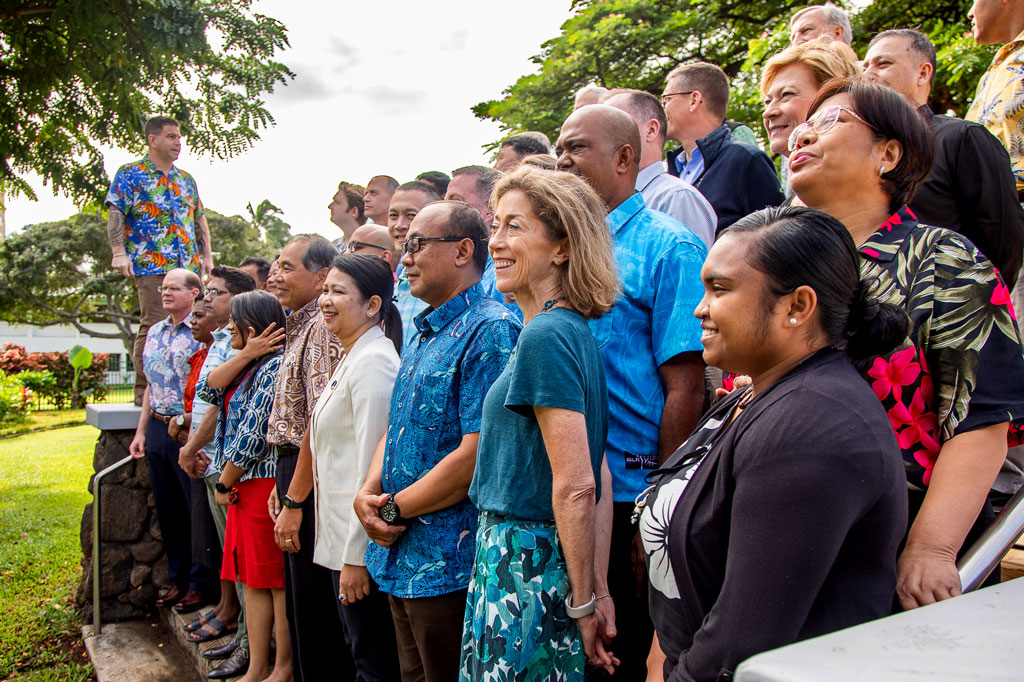 One hundred forty-eight American and international Fellows completed the popular one-week Asia-Pacific Orientation Course to become the second largest class in APCSS history on June 7. Although the majority of Fellows were from U.S. Pacific Command and other on-island major component commands as well as the U.S. Coast Guard, USAID, and U.S. Strategic Command, this class also included non-U.S. participants. Eighteen international Fellows attended the course from Australia, Canada, New Zealand, Singapore, and Taiwan.
One hundred forty-eight American and international Fellows completed the popular one-week Asia-Pacific Orientation Course to become the second largest class in APCSS history on June 7. Although the majority of Fellows were from U.S. Pacific Command and other on-island major component commands as well as the U.S. Coast Guard, USAID, and U.S. Strategic Command, this class also included non-U.S. participants. Eighteen international Fellows attended the course from Australia, Canada, New Zealand, Singapore, and Taiwan.
The course structure utilized a mix of plenary lectures, panels, brown bag lunches, seminar discussions and elective-seminars, a venue that continues to be successful in allowing the Fellows to pursue tailored areas of interest. The large number of Fellows allowed APCSS to showcase and fully utilize all facilities to the maximum extent possible. Maluhia Hall was used not only for seminar, but also to accommodate the unprecedented number of electives (17 in all) and the two scheduled brown bag lunches.
The course covers trends and current issues shaping the regional security environment. The course focuses on U.S. policy and provides an introduction to regional cultures, politics, protocols and challenges. The curriculum broadly examines: Security Foundations; Regional Security Perspectives; Country Specific Issues; Transnational Issues; Governance, and Development and Security Cooperation Issues. This rigorous program of lectures and interactive sessions better equips graduating course Fellows with policy perspectives and tools important for duties at U.S. Pacific Command and its components.
The Asia-Pacific Center for Security Studies is a Department of Defense institute that addresses regional and global security issues. Military and civilian representatives, most from the U.S. and Asia-Pacific nations, participate in a comprehensive program of executive education, professional exchanges and outreach events, both in Hawaii and throughout the Asia-Pacific region. The Center supports the U.S. Pacific Command by developing and sustaining relationships among security practitioners and national security establishments throughout the region. Its mission is to build capacities and communities of interest by educating, connecting, and empowering security practitioners to advance Asia-Pacific security. It is one of the Department of Defense’s five regional security studies centers.
Since opening in 1995, APCSS has had representatives from 104 countries and territories, and four international organizations attend courses at the Center for a total of 7,586 alumni.
-END-









Leave A Comment